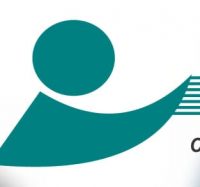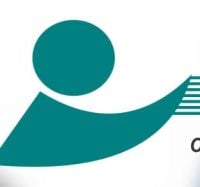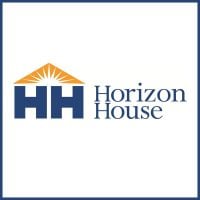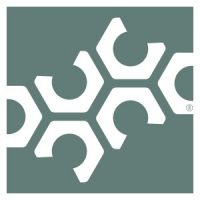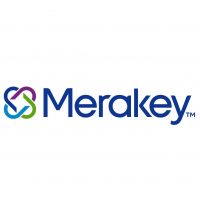
Penn Presbyterian Medical Center
Drug Rehab Center in Philadelphia, Pennsylvania
- Substance Abuse
- Opioid Addiction
- Mental Health
- Dual Diagnosis
- Drug Addiction
Penn Presbyterian Medical Center has been providing compassionate, supportive addiction treatment for individuals in Philadelphia since 1751, offering a variety of therapies, state-licensed and accredited detox services, intensive outpatient and aftercare support programs, as well as dual-diagnosis treatment for those struggling with both addiction and underlying mental health issues, all covered by most private health insurance.
About This Pennsylvania Facility
Presbyterian Medical Center of Philadelphia, PA was founded in 1751 and offers comprehensive treatment for opioid addiction and other substance abuse issues, as well as dual-diagnosis and mental health. Through personalized treatment plans and compassionate care, the team of dedicated professionals help individuals reclaim their lives and move forward on the path to wellness.
Clients of the facility are provided levels of care such as aftercare support, residential drug rehab, Dual-Diagnosis, Intensive Outpatient, Outpatient, and Detox. Treatment is informed by Cognitive Behavioral Treatment (CBT), Dialectical Behavioral Therapy (DBT), Individual Therapy, Group Therapy, Family Therapy, and DUI/DWI Evaluations + Screening + Assessment. Additionally, additional issues and addiction treatment is available. These include Mood Disorders, Eating Disorders, Psychosis, Panic Disorder, ADHD, Sleep or Insomnia, Autism, Chronic Pain, Intellectual Disability, Developmental Disorders, Obsessive-Compulsive Disorder (OCD), Trauma and PTSD (Post Traumatic Stress Disorder), Relationship Issues, Social Anxiety, Weight Loss, Women's Issues, and Gambling Addiction. The facilities is accredited by State License, and accepts Private Health Insurance.
Genders
Ages
Modality
Additional
Accreditations
State License
Conditions and Issues Treated
Substance use disorder falls under two categories: Alcohol or Drug Abuse and Drug Dependence. An individual suffering from a substance use disorder and mental health disorders is said to have a co-occurring disorder or a dual disorder.
Individuals with substance use disorders and mental health problems are said to suffer from a ‘dual diagnosis’. The most frequently identified mental health issues found in individuals with substance use disorders include anxiety, depression, schizophrenia, and schizoaffective disorder.
Levels of Care Offered at Penn Presbyterian Medical Center
This center offers a variety of custom treatment tailored to individual recovery. Currently available are Aftercare Support, Detox, Drug Rehab, Dual-Diagnosis, Intensive Outpatient, Outpatient, with additional therapies available as listed below.
Detox is a drug rehab process that is designed to remove the drug addict from the drug safely. The problem with solely using detox as a sobriety tool is that it alone provides no therapy or counseling. If a person goes through detox and returns to their everyday life, they may begin using again once the detox has worn off.
Detox does not help with cravings, so for some addicts, this can be extremely difficult and should be both done and supervised by medical professionals. Aftercare is crucial, so selecting a facility that offers additional services is important.
An Intensive Outpatient Program like what’s offered at Penn Presbyterian Medical Center, targets those who need intensive treatment but would rather get it in the comfort of their homes. The treatment programs vary in duration and intensity. They can be tailored to suit the patient’s needs.
When remaining at their job in Philadelphia, or continuing their studies, the individual may live with their family while utilizing Penn Presbyterian Medical Center‘s outpatient services. Treatment requires counseling the patient at the individual level, in a group setting, about substance addiction, drugs, and therapy sessions.
Aftercare support involves the support given to a Philadelphia, Pennsylvania patient after they complete treatment. It helps them adjust to normal life. It may include setting them up in a halfway house and enrolling them in programs like Narcotics Anonymous (NA) and Alcoholics Anonymous (AA). Penn Presbyterian Medical Center‘s patients may also be provided with career training to help them get back into the job force.
Therapies & Programs
Family therapy is a set of therapeutic approaches that assumes that the entire family is a system. It utilizes the strengths and resources of the family to help the patient refrain from resorting to substance abuse. The impact of substance abuse is not just on the patient but on the entire family. Family therapy ensures that the patient gets adequate support from the family members after the treatment making the recovery process sustainable
- Family therapy guides all the members of the family to help the patient.
- It helps to repair relationships and improve communication between family members.
- It helps to keep the patient engaged and motivated throughout the treatment.
Group therapy is an important tool in recovery. Finding a peer group in Philadelphia, PA and others who relate to your situation is a fundamental tool for recovery at Penn Presbyterian Medical Center. Addiction tends to lead to isolation and feelings of uniqueness. The accountability and friendship that is found in group therapy can be more effective than any single other treatment approach. This is generally introduced early in recovery and is recommended as a lifetime treatment habit.
A type of cognitive-behavioral therapy is Dialectical Behavioral Therapy. It is intended for those who are vulnerable to self-harm and suicidal thoughts. Penn Presbyterian Medical Center aims to help patients understand the connection between their feelings, emotions, and behaviors and provide them with the tools to make a difference in Philadelphia, PA. For those whose addictions and habits originate from severe mental health problems, it is beneficial.
Negative feelings are common in substance abuse disorders. If not recognized, they can cause co-occurring disorders. CBT involves strategies that help to change the thinking and behavioral pattern. It can be administered as a monotherapy as well as a part of combination therapy.
Payment Options Accepted
For specific insurance or payment methods please contact us.
Is your insurance accepted?
Ask an expert, call (888) 674-0062
Additional Details
Specifics, location, and helpful extra information.
Philadelphia, Pennsylvania 19104 Phone Number(215) 662-8793 Meta DetailsUpdated November 25, 2023
Staff Verified
Patient Reviews
There are no reviews yet. Be the first one to write one.
Philadelphia, Pennsylvania Addiction Information
Pennsylvania ranks 14th in the nation for drug-related deaths. More than 10% of all deaths in Pennsylvania have been related to drugs and alcohol. 30% of Pennsylvania youth reportedly drink alcohol monthly, with more than 20,000 teenagers having an alcohol problem. The rate of opioid misuse in Pennsylvania is double the national average.
Drug addiction and abuse are a big problem in Philadelphia, Pennsylvania. According to recent statistics, about 73,000 people in Philadelphia struggle with drug addiction. This means that about 7.5% of the population is addicted to drugs. Philadelphia also has one of the highest overdose rates in the country, with about four deaths per 100,000 people. It is important to choose a program that fits the individual's needs and addiction severity.
Treatment in Nearby Cities
- Berwick, PA (93.2 mi.)
- Coudersport, PA (193.7 mi.)
- Montrose, PA (134.4 mi.)
- Boyertown, PA (34.7 mi.)
- Port Matilda, PA (161.2 mi.)
Centers near Penn Presbyterian Medical Center

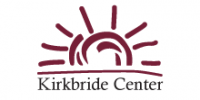
The facility name, logo and brand are the property and registered trademarks of Penn Presbyterian Medical Center, and are being used for identification and informational purposes only. Use of these names, logos and brands shall not imply endorsement. RehabNow.org is not affiliated with or sponsored by Penn Presbyterian Medical Center.


